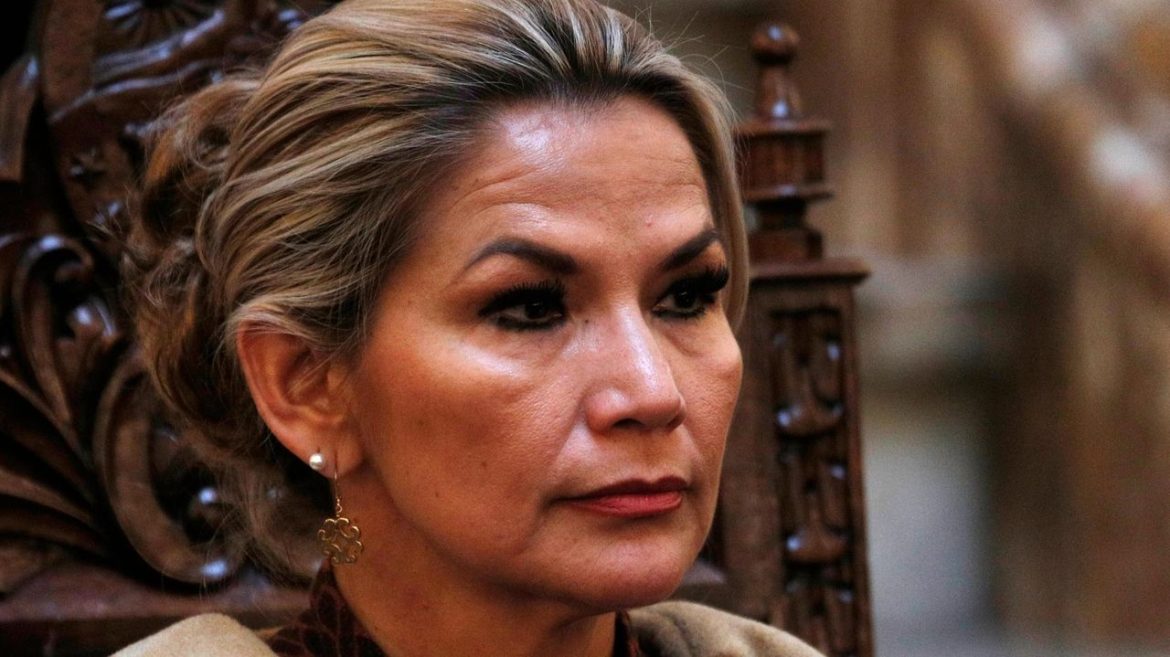LA PAZ, Bolivia — Bolivia’s Supreme Court on Friday ordered judges to urgently review whether three prominent right-wing leaders had been held in prison for too long without trials, threatening to reopen a tumultuous chapter in Bolivia’s politics just days after a presidential election ended two decades of dominance by the governing leftist party.
Bolivia’s Chief Justice Romer Saucedo gave judges 24 hours to scrutinize the length of pretrial detention in high-profile cases stemming from the crisis over the 2019 ouster of former President Evo Morales, Bolivia’s first Indigenous president, according to a copy of the document obtained by The Associated Press.
The order, experts say, could pave the way for the release from custody of three of Bolivia’s most divisive right-wing politicians: Former interim leader Jeanine Añez, former governor Luis Fernando Camacho and his former running mate, Marco Antonio Pumari.
Revisiting cases from the 2019 crisis
After his contested reelection to an unprecedented fourth term in 2019 set off mass protests, Morales stepped down under pressure from the military, paving the way for Añez, a previously little-known senator and staunch Catholic, to assume office as interim leader.
As president, Añez oversaw a brutal crackdown by security forces on civilian protesters and stifled dissent, with at least 37 people being killed in the postelection violence.
A year after new elections in 2020 vaulted to power current President Luis Arce, Morales’ handpicked successor from his long-ruling Movement Toward Socialism, or MAS, party, Añez was arrested on charges of terrorism and sedition, among other offenses tied to Morales’ 2019 ouster which his supporters view as a coup.
In 2022, Añez was sentenced to 10 years in prison on charges of breaching her duties and violating Bolivia’s constitution but faces at least seven other open criminal cases covering a range of charges, including her involvement in the killings of protesters.

Women prepare food for former President Evo Morales and peasant leaders meeting at the peasants federation during general elections in Villa 14 de Septiembre, in Bolivia’s Chapare region, Sunday, Aug. 17, 2025. Credit: AP/Jorge Saenz
Añez appealed the sentence and contested the other charges, arguing that she should only be judged in a special impeachment process for former presidents that requires authorization from two-thirds of Congress before any trial can proceed. She is currently being tried as an ordinary citizen.
Camacho, a close ally of Añez, has been in pretrial detention since his arrest in late 2022 while leading a strike against Arce’s government in the country’s business hub of Santa Cruz. He was detained on suspicion of terrorism and insurrection over his role in 2019 leading mass protests against Morales’ re-election.
Pumari, who ran as Camacho’s running mate in the 2020 elections against Arce, was also arrested on charges related to his involvement in Morales’ removal from power and has been held in pretrial detention since 2021.
A judiciary widely seen as tainted
In Bolivia, critics say the courts have become a political prize to control rather than an impartial arbiter.
When Añez came to power, she charged Morales, then in self-exile, with sedition and terrorism even as evidence was lacking.
When Arce came to power, he oversaw the arrests of Añez, Camacho and Pumari, raising concerns among international watchdogs that he, too, was using the courts to target his adversaries.
Now, some see the judiciary’s abrupt move to reexamine the cases as similarly motivated by politics.
Friday’s directive comes just days after Bolivia took a lurch to the right in presidential and parliamentary elections.
A runoff election on Oct. 19 will pit a centrist senator, Rodrigo Paz, against a right-wing populist former president, Jorge “Tuto” Quiroga, marking a stunning defeat for the MAS party after 20 years of hegemony.
Quiroga, who captured second place, has promised that, if elected, he would not only free his political allies, including Áñez and Camacho, but also ensure the arrest of Morales, now holed up in his stronghold in the jungle of Chapare evading an arrest warrant on charges related to his alleged sexual relationship with a 16-year-old girl.
“I believe he is trying to sympathize with the changing political times,” Eduardo Rodríguez Veltzé, a former chief justice of the Supreme Court, said of the judge who released the directive.
“This decision reflects a careless and irresponsible handling of the authority of the Supreme Court.”
Jailed politicians get their hopes up
The three opposition figures and their legal representatives welcomed Friday’s order as a possible first step toward freedom after years in custody.
“It is not a triumph, it is a reparation; it is not a gift, it is a right,” Áñez wrote on social media. “Although late, I receive it with joy and faith that justice now gives hope to all Bolivians.”
Camacho’s lawyer, Martín Camacho, told reporters he was informed that courts would begin their review of the case as soon as Saturday, opening a “way for Camacho to recover his freedom.”
“I hope we’ll hear immediately,” he said.
Pumari criticized his own pretrial detention as “corrupt justice” in a post on social media Friday that celebrated news of the court order.
“Corporate groups of some judges, prosecutors, and lawyers collude to profit from the pain of the families of those deprived of liberty,” he wrote.
#Bolivias #Supreme #Court #issues #rare #order #detained #rightwing #politicians #freed



